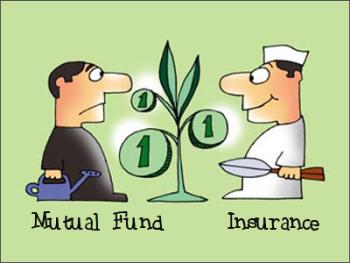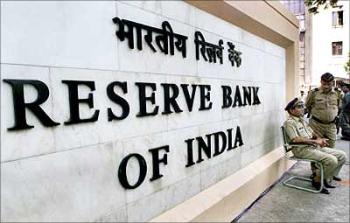
Welcome back to the world of investment avenues! After the interesting journey through equities, let us now explore the relative safety of debt.
Debt is an obligation that enables one party to raise funds by promising to repay a lender along with interest in accordance with the terms of a contract. As debt is an obligation where the borrower has to pay, this makes it a relatively safer bet to invest in unless the borrower defaults.
The advantages of investing in debt instruments are: relative safety, assured returns, regular income and stability to your investment portfolio. The disadvantages are: the risk of default or credit, low returns that do not even beat inflation.
Debt investments should form an important part of every individual's portfolio. Let us have a look at the various options available to an individual for investments.
Bank fixed deposits
They are one of the most trusted forms of investments in which generally everybody invest their money. Fixed deposit is usually opened with a bank wherein you invest a lump sum amount for a fixed period and you earn interest on the principal amount. It is like giving a loan to the bank in return for interest.
Advantages: fixed regular income, liquidity and safety of your investments if invested in a public sector bank.
Disadvantages: In case the bank goes under, your deposits are guaranteed only to the tune of Rs one lakh. In recent times, FDs have been giving lower returns due to low interest rates and hence are not able to beat inflation.
All said and done, fixed deposits are still an attractive form of investments especially for individuals who are looking for safety or need to achieve their goals within a short period of time and for individuals considering forming a contingency corpus.
Company fixed deposits
Similar to banks, companies come out with fixed deposits for various tenures through which they raise a loan for their business. In return an individual earns interest.
Advantage: higher interest rates than bank fixed deposits.
Disadvantages: higher risk of default as no guarantee from central government and if the company goes under, you are in a big soup. Also, company fixed deposits is unsecured which means if the company goes bankrupt you cannot claim money against any of its assets.
Do remember to check the credibility of the company by checking the ratings as given by credit rating companies and also check the past record of the company.
The author is a certified financial planner and can be reached at dhanplanner@rediffmail.com

It is the safest and one of the best forms of debt investments since it is backed by the central government and one can get tax exemption even on the interest earned. An individual with a minimum investment of Rs 500 per annum to a maximum of Rs 70,000 per annum can open it.
You can open a PPF account with any nationalised bank and also at post offices.
Advantages: tax exemption under section 80C for principal amount invested, interest is exempted from tax and so is the maturity amount. Absolute safety as backed by government of India, with a fixed return of 8 per cent per annum.
Disadvantage: There is only one disadvantage with PPF, liquidity. The tenure of investments is 15 years. You can take loan from the third year onwards to the sixth year. But you can get a loan of only 25 per cent of the balance in your account in the first year. After the sixth year you can withdraw or get a loan of only 50 per cent of the amount in your account at the end of fourth year.
PPF is a very good form of investment for long-term wealth building. At the end of the tenure you can extend the account for another block of five years. You are allowed to extend it up to three blocks of five years. Everyone is recommended to open a PPF account.
Small savings schemes of post office
There are various schemes of post office available for individual investors:
Post office monthly income scheme (POMIS): It can be opened with any departmental post office with a minimum amount of Rs 1,500. The maximum deposit could be Rs 4.5 lakh for a single holder account and Rs 9 lakhs for a joint account. The rate of interest earned is 8 per cent per annum.
Advantages: Safety as backed by the Government of India, regular monthly returns and five per cent maturity bonus (tenure being 6 years).
Disadvantage: interest earned is taxable so the effective rate of return especially for individuals in highest tax bracket is low.
Post office recurring deposit (PORD): Can be opened at all post offices with a minimum of Rs 10 per month with no upper limit. The interest earned on this amount is 7.5 per cent with maturity after five years.
Advantages: Safety, loan availability and regular income.
Disadvantage: Interest is taxable so effective rate of interest is low.
Post office time deposit (POTD): Can be opened for a period of 1, 2, 3 and 5 years with varying rate of interest based on the tenure. The minimum investment is Rs 50 with no upper limit.
Advantage: Safety as backed by the Government of India.
Disadvantage: interest is low and taxable so effective rate of interest is low.

Certificates under the scheme can be purchased from all post offices in denominations of Rs 100, Rs 500, Rs 1,000, Rs 5,000, Rs 10,000 and Rs 50,000. There is no maximum upper limit. The amount doubles in 8 years and 7 months. The certificate can be encashed anytime after two and half years.
Advantage: Safety and guaranteed doubling after 8 years and 7 months.
Disadvantage: The maturity amount is taxable.
National Savings Certificate (NSC)
Certificates under the scheme can be purchased from any post offices or directly or through an authorised agent in denominations of Rs 100, Rs 500, Rs 1,000, Rs 5,000 and Rs 10,000. There is no upper limit. The rate of interest is 8.16 per cent and is compounded half yearly and amount is received on maturity which is 6 years.
Advantages: Safety, guaranteed returns, exemption of the principal amount up to Rs 1 lakh under section 80C.
Disadvantage: Interest is taxable which makes the effective rate of return low.
Senior Citizen Savings Scheme (SCSS)
Can be opened by an individual who has attained the age of 60 years. An individual who has attained the age of 55 years but less than 60 years who has retired under VRS can open the account. The account can be opened at any post office accepting savings, any of the branches of SBI, specified nationalised banks which offer PPF facilities.
The minimum amount you can invest is Rs 1,000 and maximum limit is Rs 15 lakh. A joint account with your spouse is allowed. The interest earned is 9 per cent and is credited quarterly to your account. The tenure is of 6 months.
Advantages: safety, liquidity as premature closure after one year is allowed, the principal amount invested up to Rs 1 lakh is exempted under section 80C.
Disadvantage: the interest amount is taxable. This is a good scheme for senior citizens, as the rate of interest is high as well as safety of their hard earned money is assured.

These are quite similar to equity mutual funds. These are mutual funds whose base holding is fixed income investment. A debt fund will invest in short or long term bonds, money market instruments, securitised products or floating rate bonds.
Advantages: Fee ratio is low, preservation of capital and good form of investment when investing for short term.
Disadvantages: In the current scenario where interest rates are at their lowest, the only way they can go from here is up, which has an inverse effect on returns. So with rising interest rate your investments will give low returns and vice versa.
Similar to equity mutual funds debt funds too offer numerous options for each and every individuals needs.
Gilt funds
Where money is invested in government securities having a maturity period of five years and more. Investments with a long-term debt instrument give, lesser return.
Fixed maturity plans
These are tax saving instruments as they give benefits of indexations unlike fixed deposits. Again with the interest rate at their lowest these plans are no more attractive.

An investment avenue in which an investor loans money to an entity (government or corporate) that borrows funds for a defined period of time at a fixed interest rate. Bond market has not attracted retail investors to it. But in recent times, lackluster equity markets and low rate of interest have attracted retail investors towards bonds issued by corporate.
Advantage: the rate of interest is high.
Disadvantage: no security, interest earned is taxable. So before investing in bonds do check the credibility of the company offering the bond and past record of the company.
8 per cent RBI bonds
Bonds as issued by the Reserve Bank Of India (RBI). The rate of interest offered is 8 per cent, payable half yearly with cumulative and non-cumulative option available. Tenure is six years.
Advantages: safety, guaranteed return.
Disadvantage: interest is taxable.
Government securities
Retail investors have not tapped this investment avenue as much as others. It is good for investors looking for reasonable returns with no risk of default as the securities the Government offers these securities. These securities can be held in a demat format. The market is limited so liquidity can be a problem. Investors need to have a thorough knowledge of this investment format to invest in them.
Well, then if you are the one who prefer the comforts of safety to the greed of high returns all the above debt instruments are yours to invest in.